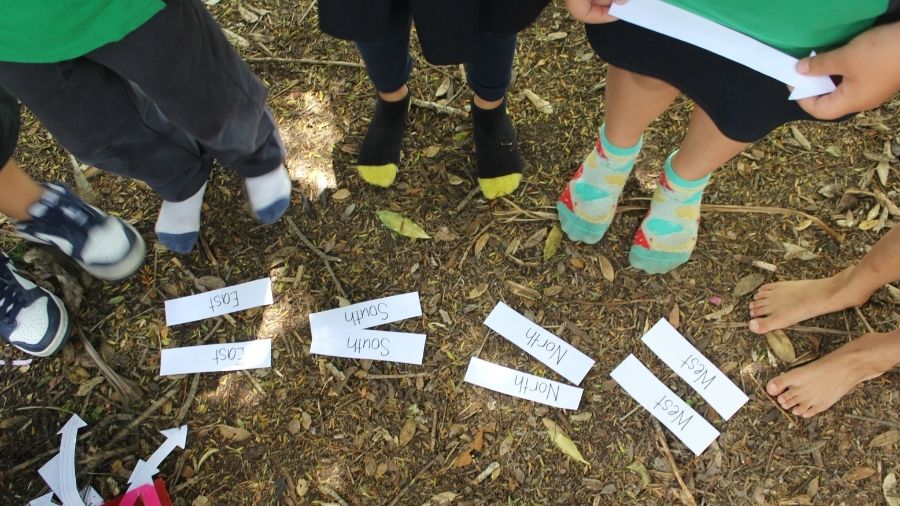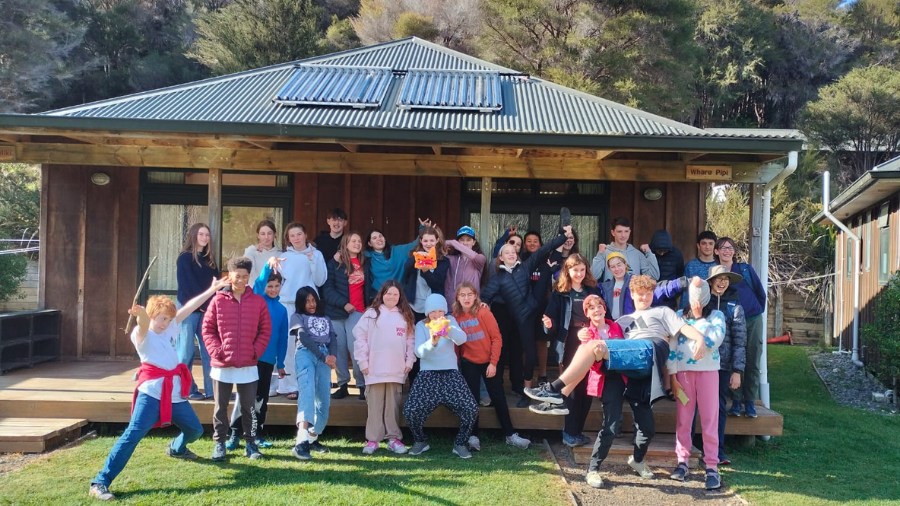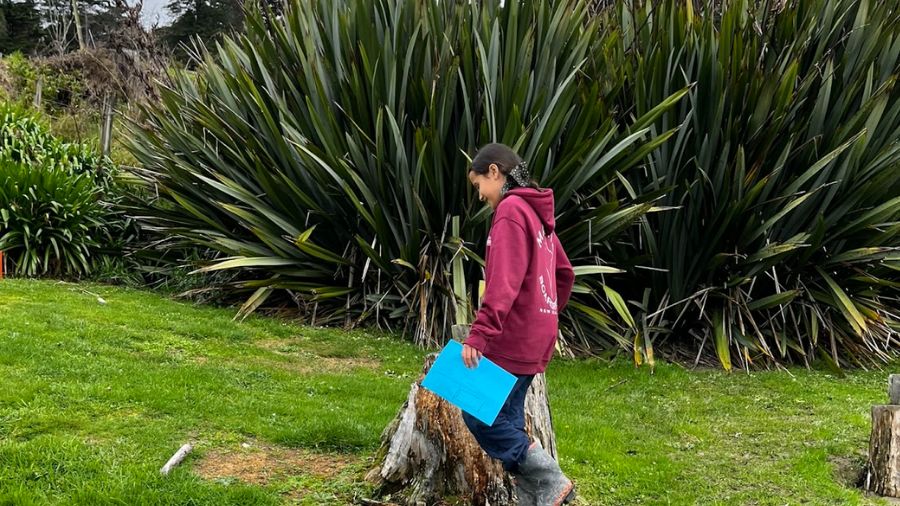Exploring nature as your classroom
This Spotlight includes ideas for kaiako working at all levels, from early childhood through to secondary education, with links to presentations and videos to spark ideas and inspiration.
A key theme that runs throughout these stories is the importance of establishing relationships with the wider community and reaching out for support from external providers. You can search for organisations and programmes in your local area by using the Providers section of our website, which can be filtered by region or context.
Connecting with Place and Te Ao Māori
As part of your journey to connect with te taiao and local places, you might like to explore concepts of place-based learning and consider your own understanding of te ao Māori, including relationships with mana whenua. Our collection Connecting to Place, Mātauranga Māori and Histories provides some resources to help you get started.
Te Papa has produced a new resource Ko au te taiao, which encourages teachers and learners to explore mātauranga Māori values, observe te taiao, and take action for a better world.
Benefits and Integration of Nature Based Education
Experienced educator and researcher Thea DePetris shares insights from her research with environmental educators across Aotearoa. Her presentation is a great starting point to set the scene for discussions with your colleagues, including an exploration of what is meant by 'nature based education' and 'nature connection', why it is so important and how to get started, with support from external providers and the wider community.
If you want to dive deeper into some of these ideas, Thea shared some useful links at the end of her presentation, including:
- Effective Approaches to Connect Children with Nature, by Carla Wilson, Department of Conservation NZ.
- Children and Nature Network resources from North America, including infographics on the benefits of learning in nature.
- Outdoor Classroom Day Muddy Hands Report, with outcomes and benefits from programmes and events in Australia.
Early Learning Educators
If your early learning centre is investigating nature excursions and nature-based learning, you will be inspired by these case studies from around Aotearoa.
Celia Hogan from Little Kiwis Nature Play in Ōtautahi has shared the video below which includes a tour of their Bush Kindy, with lots of great examples of activities and natural areas that encourage child-led play and connection with nature.
You could also watch the following videos which have been shared online by Storypark and the Department of Conservation:
- Imagine a Classroom Without Walls - Dr Anne Meade, Daisies Early Education Centre | Storypark (7 mins)
- Benefits of Teaching and Learning in Nature - Featuring ECE and schools from Porirua | Department of Conservation (3 mins)
Check out the Environmental Kinship guide, published by experienced ECE educators from Aotearoa, Scotland and the USA.
Primary and Intermediate Educators
Bianca Woyak teaches at Burnside Primary School and facilitates hands-on environmental science projects with students of all levels, to explore and take action for their local places. Covering a wide range of examples, she explains how they got started, where teachers can find support and the joy of seeing students truly engaged with their learning. Bianca is grateful for the programmes and providers who have supported their projects, including the opportunity to combine professional development with student sessions through the fully funded Field-Based STEM programmes.
Victoria Bernard works for Garden to Table and is also a primary school teacher. In her presentation she shares stories from schools around Aotearoa who are empowering students to view 'waste' differently and integrate all the stages of growing, harvesting, celebrating and recycling food and nutrients in their schools and wider community. Covering a wide range of learning areas, Victoria offers specific examples and easy starting points for wherever you are on your journey.
Secondary Educators
Kate Rivers teaches at Rangi Ruru Girls School and is joined by Year 12 students Harriette and Lottie, sharing examples of cross-curricular, student-led learning in the school and wider community. Connection to nature and place in adolescence should focus on opportunities for students to explore issues and places that are important to them, allowing for independence, empowerment and wellbeing benefits. These stories from Rangi Ruru provide a range of possible starting points for secondary schools to explore, with specific advice about timetabling, collaborative planning and other common obstacles.
You can find other examples from secondary schools in our Spotlight article: Support and Inspiration for Secondary Education






